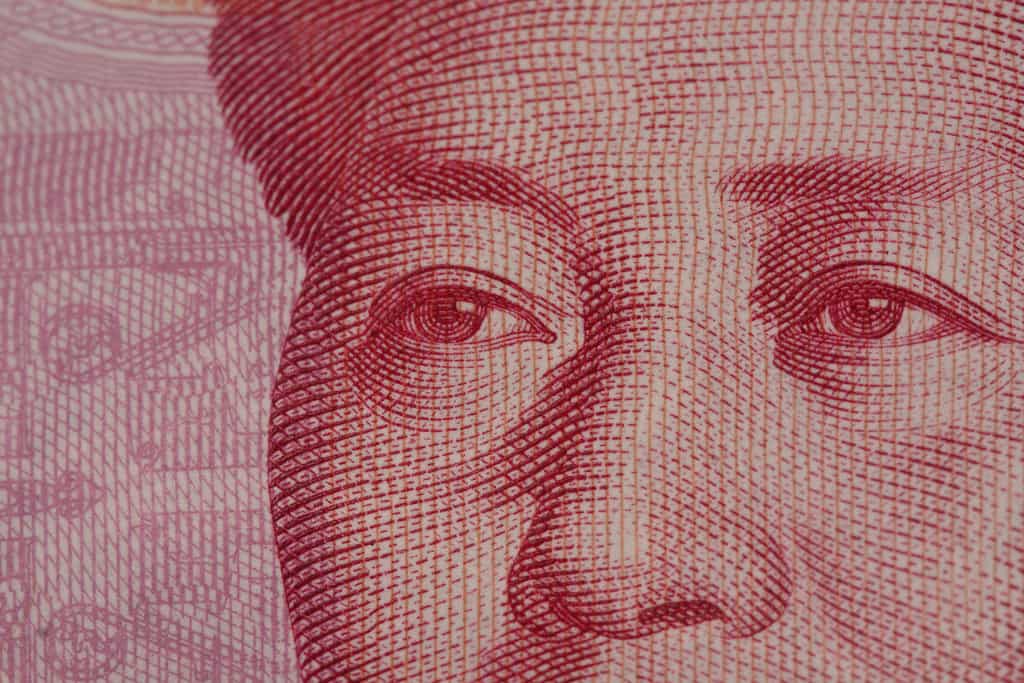One of the China’s leading academic experts on digital currencies has revealed key details on the country’s long-awaited central bank digital currency (CBDC).
The People’s Bank of China (PBOC) is believed to be on the verge of launching its CBDC, after recently announcing that it had commenced internal testing of the CBDC at banks in at least four locations around China, including Shenzhen, Suzhou, Xiong’an and Chengdu.
In an interview with Securities Times, Xu Yuan (徐远), a senior researcher with Peking University’s Digital Finance Research Centre, said that the launch of China’s CBDC would be one of the two defining historic events of 2020 alongside the COVID-19 pandemic.
According to Xu the launch of a CBDC could see human monetary systems transition from a foundation in “state credit” to “state credit + technological credit.”
“Central bank digital currency isn’t at all mysterious – essentially it’s digitised cash,” said Xu. “It’s the transition from a traditional paper medium to electronic money.”
According to Xu the use of digital money in lieu of paper currency will revolutionise the ability of regulatory authorities to scrutinise the financial system.
“Since the medium is digitised, this means that it can circulate online, and online circulation brings two important features,” he said.
“The first is that you need encryption technology to ensure the security of digitised money, and the second is that online circulation means that cash flows and information flow data can be entered into a database in real-time.
“From a regulatory perspective, cash flows becoming traceable. In theory, following the launch of CBDC, there will be no transaction that regulatory authorities will not be able to see – cash flows will be completely traceable.
“This means that all monetary issuance and payments transactions will be online in real time.”
Xu highlighted the immense convenience of a CBDC for consumers, as well as differences compared to China’s widespread AliPay and WeChat Pay digitised payments systems.
“Using a CBDC is extremely convenient – you don’t need to open a bank account, you only need to download an electronic wallet app and link it to your current bank card in order to convert your bank card’s money into CBDC on a 1: 1 basis.
“The difference between AliPay and WeChat Pay that we’re currently accustomed to using is that CBDC supports a dual-offline model during transactions.
“Using AliPay requires Internet connections during transactions – without Internet connections there is no means of completing the payment transaction.
“With the CBDC however, you can use the near-field communications function of smart phones, with no need for an Internet connection to complete a transaction.”
On the topic of Bitcoin Xu said that he does not consider it to be money as strictly defined, but instead a digital asset or “digital gold.”
“Money has two fundamental traits – state credit endorsement, as well as the ability of the central bank to adjust total volume in order to stabilise currency value,” said Xu.
“Bitcoin has neither of these features. Overall, Bitcoin and CBDC are markedly different in terms of credit foundation, technical principles, overall adjustment of value stability, anonymity and asset class”
Xu expects the launch of the CBDC to expedite China’s transition to a cashless society which will make long-standing features of the modern financial system such as ATM’s redundant.
“Looking at matters long-term, the promotion of CBDC could have a far-reaching impact on all of society. At the micro-level, the first is that we will gradually enter a cashless society, although this will be determined by smart phone penetration rates.
“We will likely enter a transitional period with a structured cashless society – for example demographic groups such as young people who are familiar with the use of smart phones will take the lead in usage of the CBDC.”
Xu also expects the issuance of CBDC to expedite the internationalisation of the renminbi, as long as the renminbi’s value is stable enough for it to be accept by other countries.
“Compared to paper cash, digital cash can reduce transaction costs, and the usage costs of enterprises and residents in other countries,” said Xu. “This will be of benefit to promotion of the renminbi.
“Digitisation technology can only reduce the circulation costs of the renminbi in other countries, but the precondition for advancing the internationalisation of the renminbi is still that the renminbi itself be a dependable currency.”
Related stories
China Commences Internal Testing of Central Bank Digital Currency
Agricultural Bank of China Launches Test App for Central Bank Digital Currency




